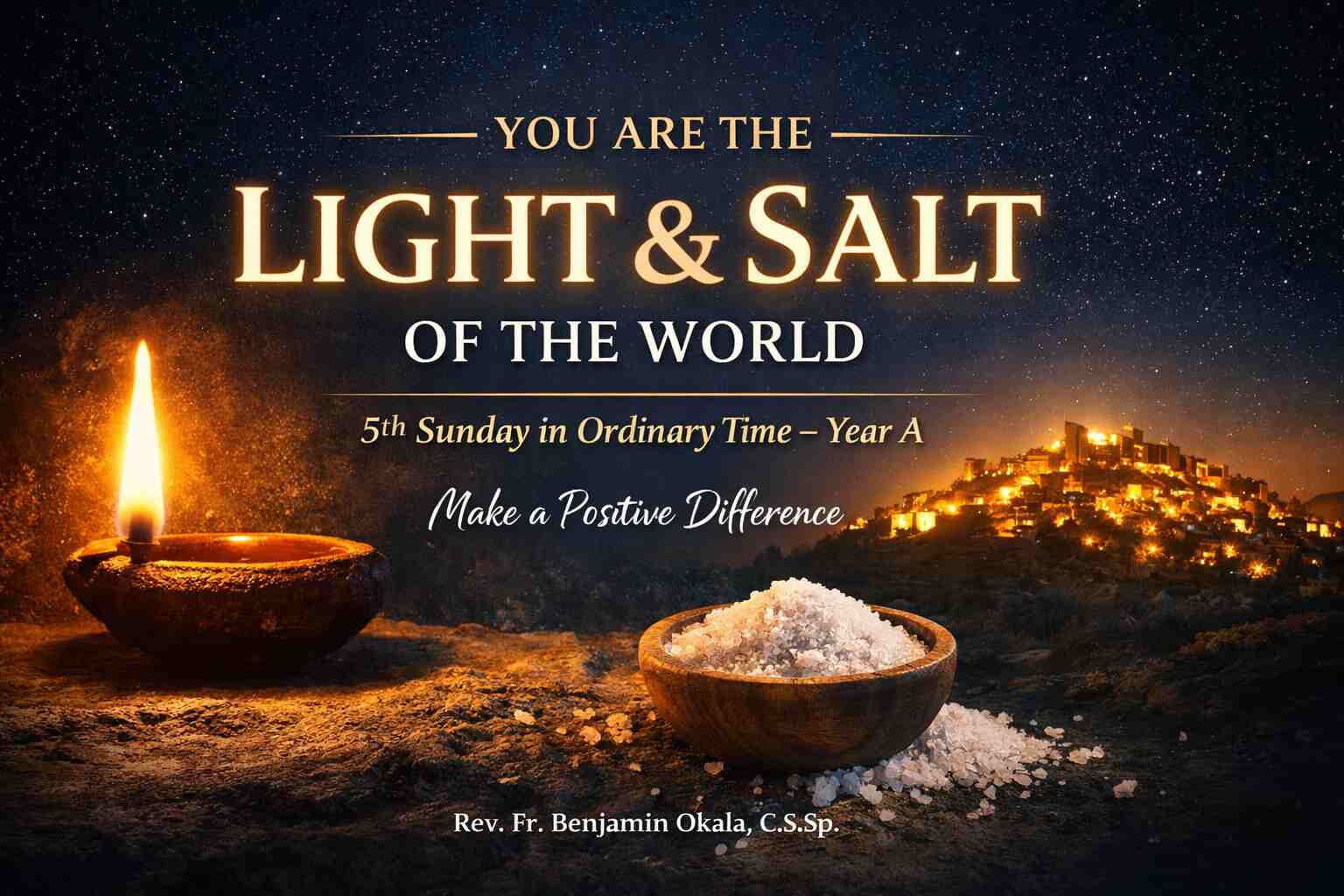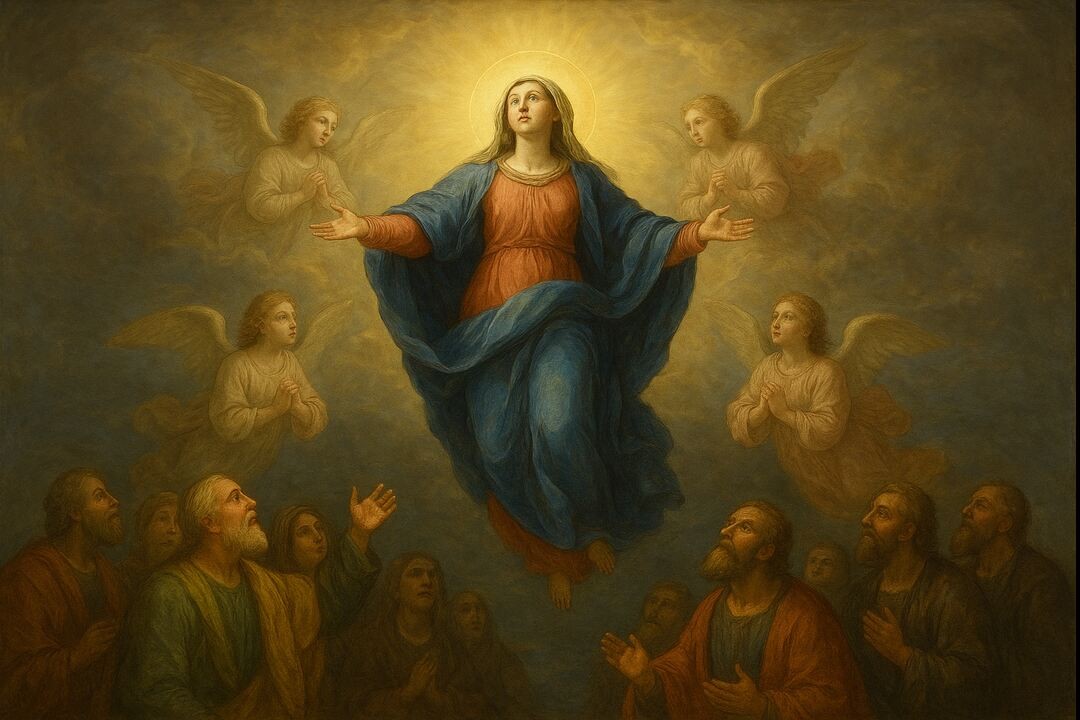Solemnity of the Most Holy Trinity, Year B
First Reading: Deuteronomy 4:32–34, 39–40; Second Reading: Romans 8:14–17; Gospel: Matthew 28:16–20
In today’s world, where division and negativity seem to permeate every corner of society, it is easy to feel overwhelmed by the challenges we face. Hatred, selfishness, jealousy, and envy have become commonplace, eroding the very foundations of our families and communities. These negative forces manifest in the form of tribalism, bigotry, and corruption, creating a landscape that seems increasingly fragmented and hopeless. However, amidst this darkness, there remains a glimmer of hope. It is a hope rooted in the belief that, as Christians, we have the power to overcome these challenges.
This hope finds its expression in the profound teachings of the Holy Trinity, a central mystery of the Christian faith. This mystery offers a blueprint for unity, understanding, and love within families, communities, and the world at large. We celebrate God: the mystery of the one God. And this God is the Father and the Son and the Holy Spirit. Three persons, but God is one! The Father is God; the Son is God; the Spirit is God. But they are not three gods: it is one God in three Persons. This homily will highlight the theological aspects of the Holy Trinity and the practical example of how to live them out in our communities.
The Holy Trinity: A Loving Community
Our knowledge of God as humans is limited due to the mystery of His divine nature. That God is a Trinitarian family is beyond our human comprehension. Historically, it was Tertullian who first used the word “Trinitas” in Christian theology. The Doctrine of the Trinity is the central mystery of the Christian faith and life, which holds that “there is One Eternal God who exists as three persons, Father (Creator), Son (Redeemer), and Holy Spirit (Sanctifier), united as One, and each person is fully God.” Love binds the three Divine Persons in perfect unity and harmony with each other. Hence, St. Irenaeus opined that Jesus and the Holy Spirit (Word and Wisdom) are the two hands of God working in the creation process.
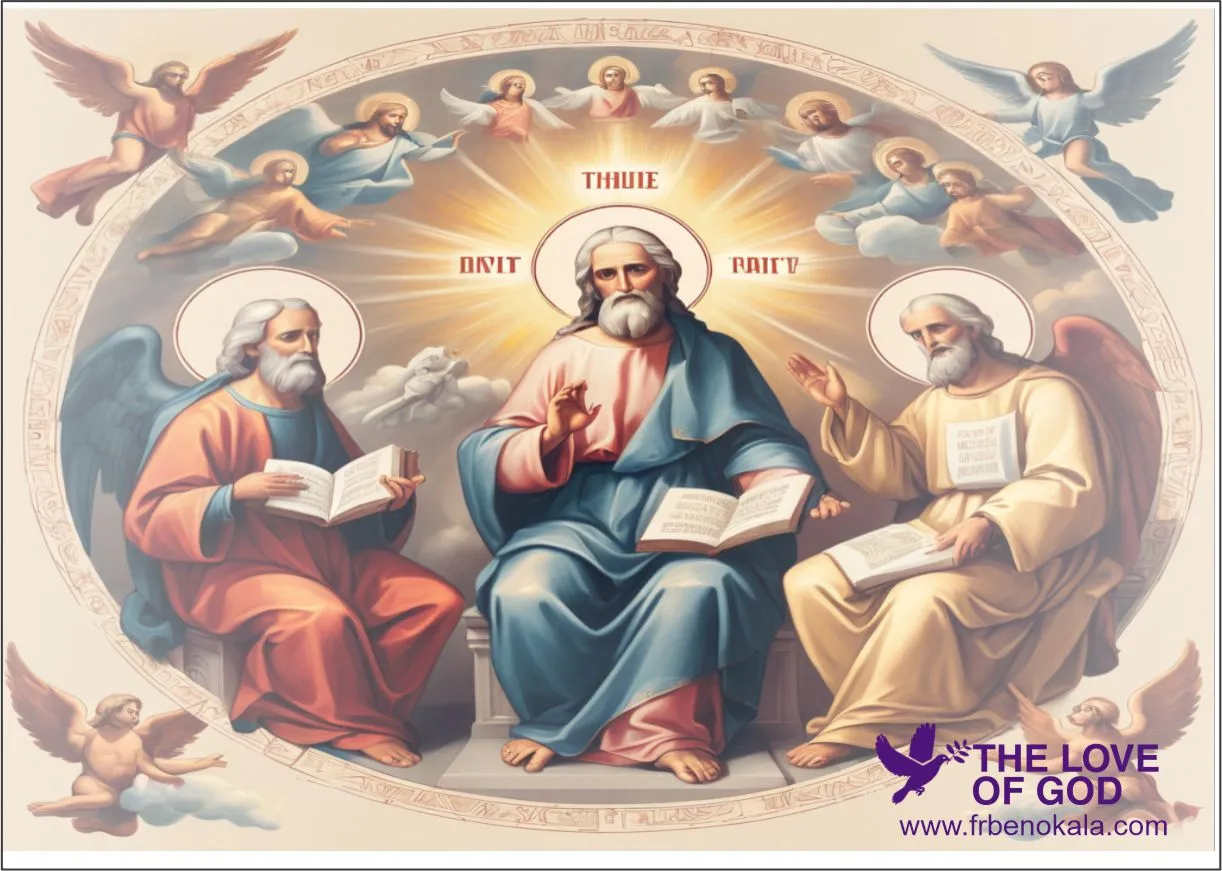
Consequently, due to heretical assumptions made by some scholars (Arius et al) in early Christianity—that Jesus Christ is not God and not of the same substance with the Father, and that the Holy Spirit is of lower rank than the Father and the Son—the Councils of Nicaea (325 AD) and Constantinople (381 AD) were convoked to resolve and affirm the natures of Jesus Christ and the Holy Spirit respectively. These councils brought forth the definition and formulation of the Doctrine of the Nicene Creed, which we profess in the Church today. Noteworthy, the “Father”, “Son” and “Holy Spirit” are not simply names designating modalities of divine being, for they are really distinct from one another (CCC 254). This is a mystery that is beyond human comprehension.
Moses Exhorts the Congregation about the Uniqueness of God
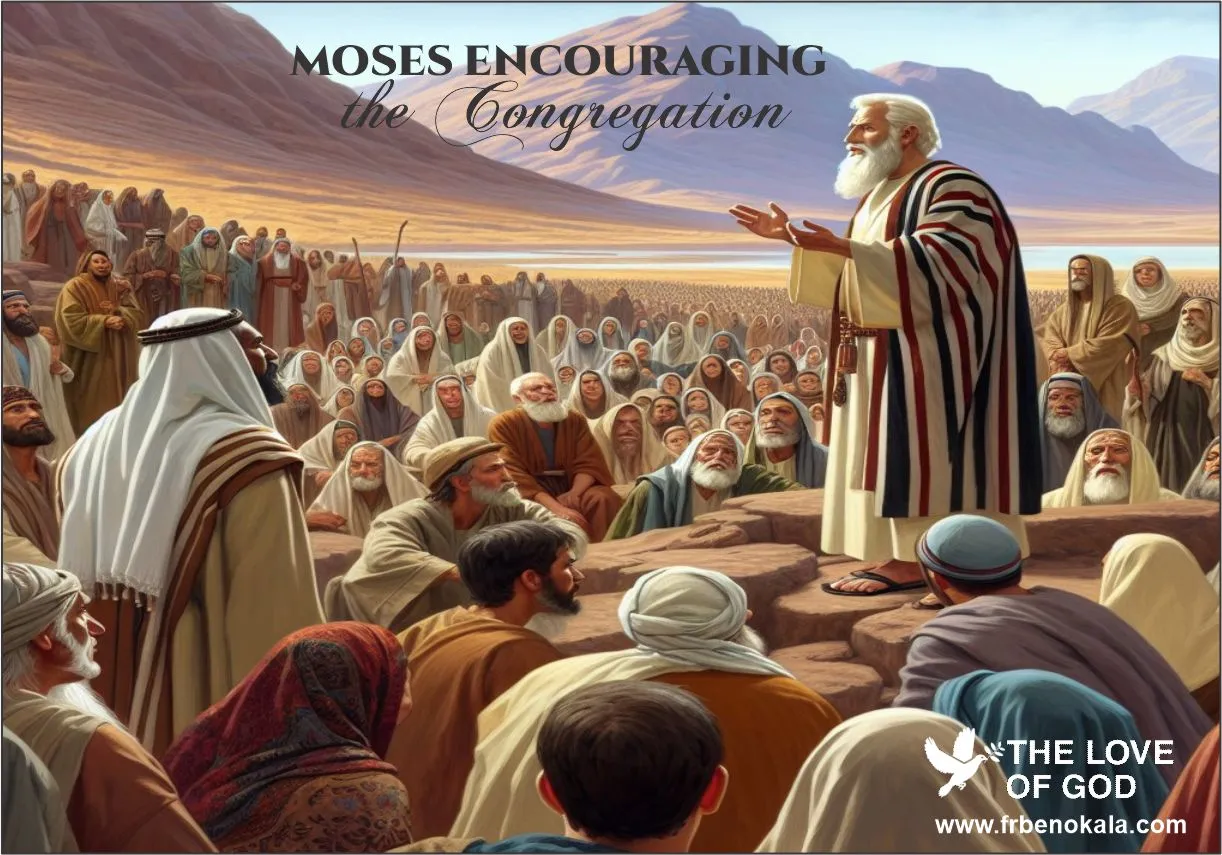
In the first reading, Moses reminded the Israelites that there is only one eternal God who, out of His merciful love, delivered them from slavery and nurtured them as His own people. Moses emphasized the uniqueness of God, who performed great wonders and signs to save His people. This passage underscores the foundational belief in the oneness of God, which is a crucial aspect of understanding the Holy Trinity. As a matter of fact, everything in Christian life revolves around the Mystery of the Holy Trinity.
Moses urged the Israelites to reciprocate God’s love by keeping His commandments (Deuteronomy 4:37–40). This call to obedience is not just a legalistic requirement. But a response to the loving relationship that God initiated with His people. Just as the Holy Trinity live a communal life, whose community is united in love, we are called to emulate such loving community by living out God’s commandments in our daily lives with love. Keeping God’s commandment is a way of showing God that we love Him as well as our fellow human being.
The Holy Trinity binds us in Love
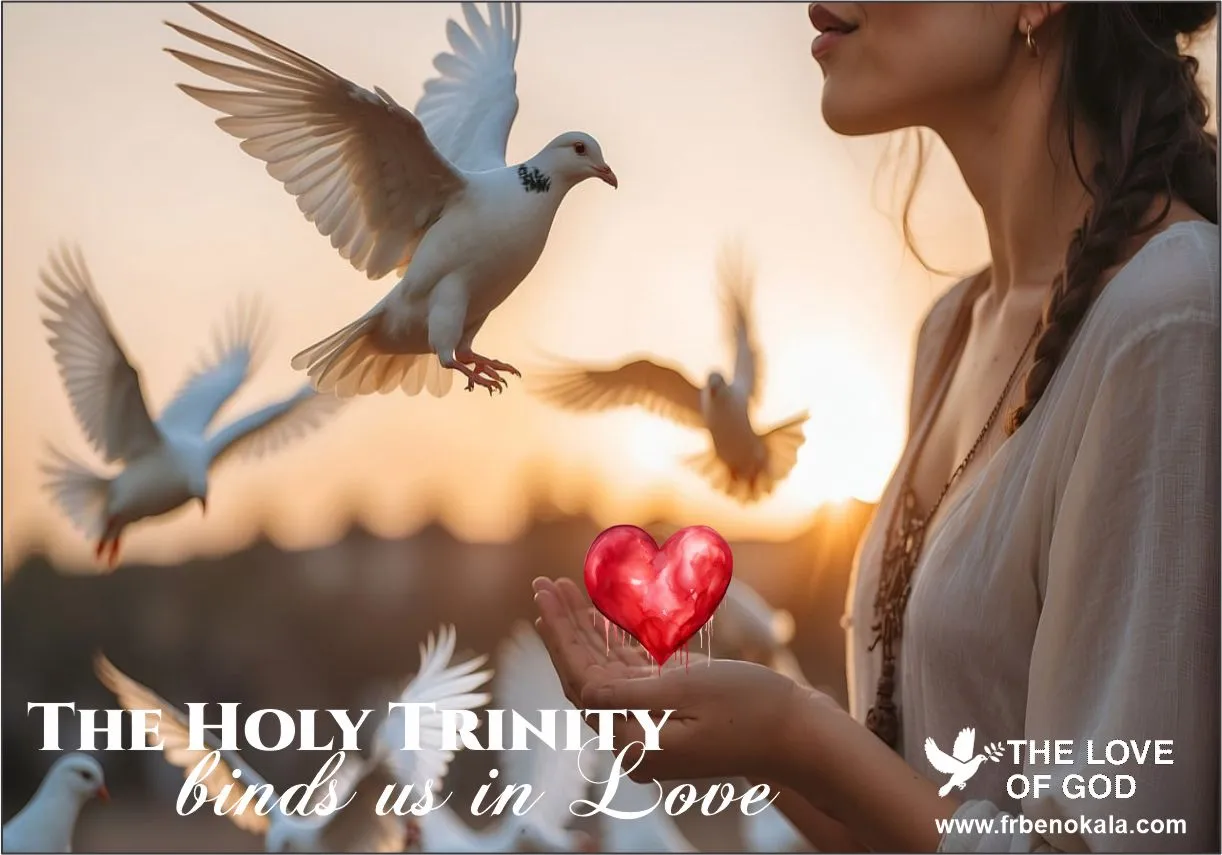
In the second reading, St. Paul speaks about the Spirit of God that makes us children of God. He emphasizes that we have received the spirit of sonship, not a spirit of slavery. When we cry, “Abba! Father!” it is the Spirit Himself bearing witness with our spirit that we are children of God (Romans 8:16). This passage beautifully illustrates the intimate relationship we have with God through the Holy Trinity. Certainly, the journey of Christian life is indeed essentially a “Trinitarian” journey. Jesus Christ came into the world to make the Father known to us. To guide us to Him and to reconcile us with Him. The Holy Spirit guides us to full knowledge of Christ’s teachings, and also reminds us what Jesus taught us.
As children of God, we are heirs of God and fellow heirs with Christ. This inheritance is not just a future promise but a present reality that we live out through the Holy Spirit. The Holy Trinity binds us in love and harmony with one another. This reflects the perfect unity and love that exist within the Holy Trinity itself. Since the Holy Trinity is a community of persons, we are called to live in community with love and mutual support.
The Integral Role of the Holy Trinity in the Church
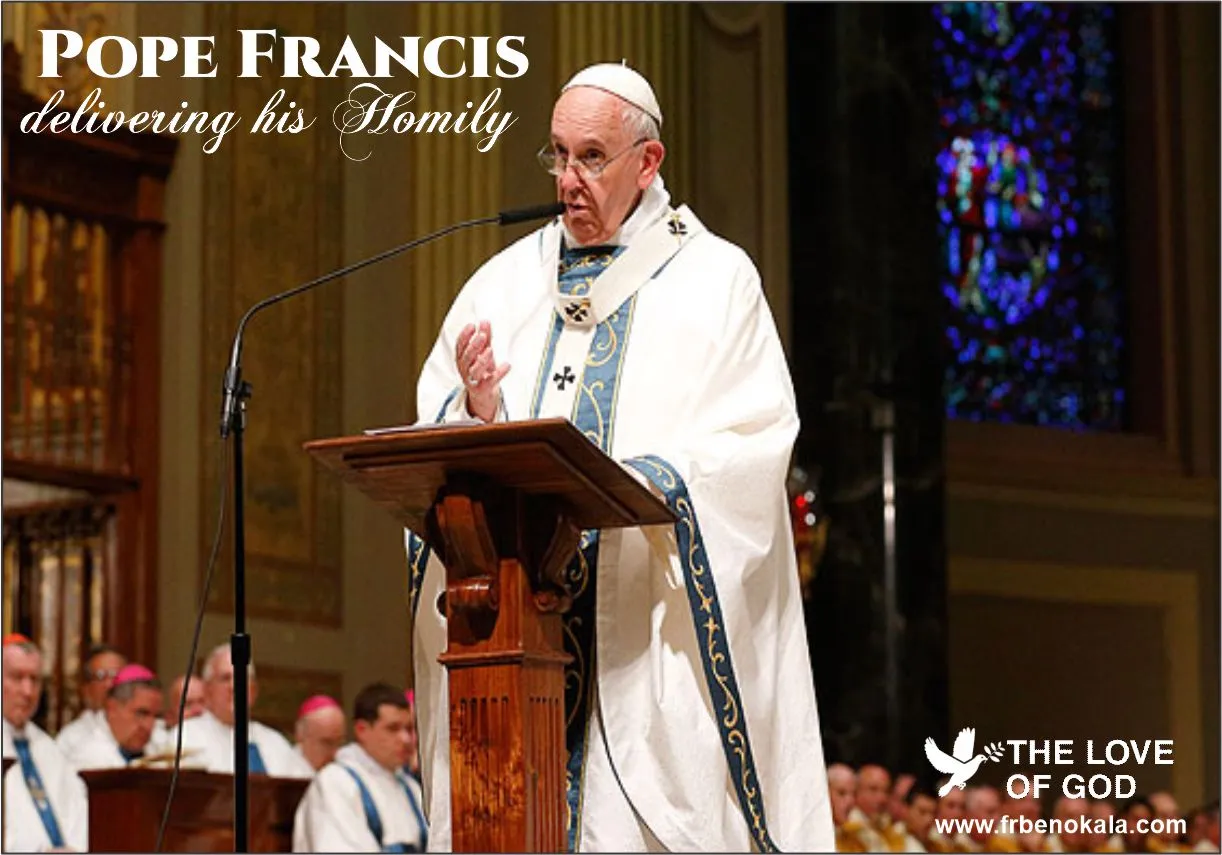
In today’s gospel reading, Jesus Christ gives the “Great Commission” to His disciples. He instructs them to go and make disciples of all nations, baptizing people using the trinitarian formula. That is, in the name of the Father, and of the Son, and of the Holy Spirit (Matthew 28:18–20). This trinitarian formula highlights the integral mission of the Holy Trinity in evangelization of the world. He assures them of His presence always, emphasizing the ongoing relationship between the Trinity and the Church.
The Holy Trinity is not just a theological concept but a lived reality that shapes our identity and mission as Christians. Besides, the command to baptize with trinitarian formula signifies the entry into a new life in communion with God. It is a call to live out the teachings of Christ and to participate in the life of the Trinity. This is a command entrusted by Jesus Christ in all ages to the Church, which has inherited the missionary mandate from the Apostles. He also directs it to each one of us who, through the power of Baptism, are part of His Community.
The Holy Trinity: A Model for Communal Living
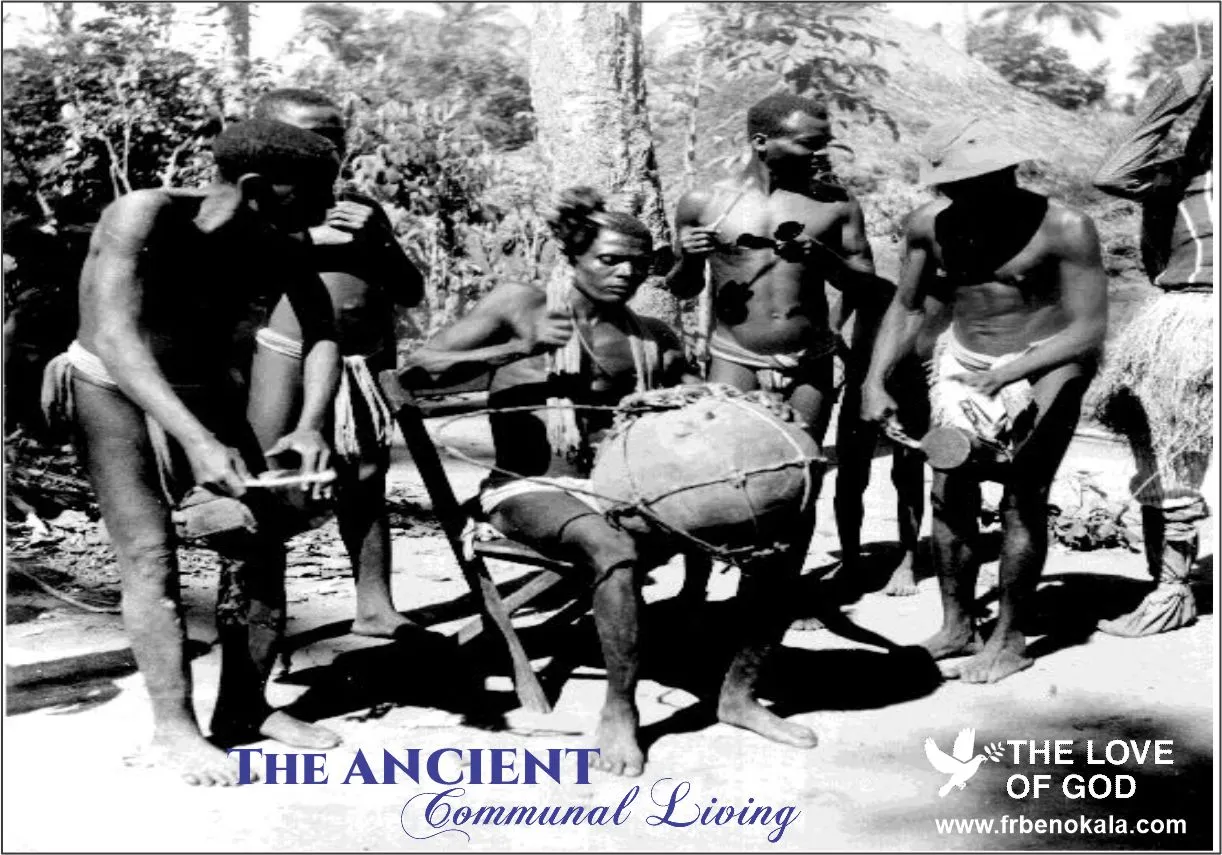
In ancient times, in Igboland to be precise, everyone was a landowner. There were no homeless people in any part of Igboland. At that time, life was very easy and enjoyable, and people lived a communal life. When a man reached the age to owning a house (ife obi), his age grade would contribute freely and build a house for him. He would in turn do the same for others coming after him. There were no unhealthy competitions leading to jealousy and envy just as we experience in our communities today. The age grades even contributed their resources to help their mates in marrying wives of their choice. Moreover, they were doing all these things happily without charge. Community development was an important role and duty of the pre-colonial Igbo society. But now, people are afraid of collaborating with others in the community, even identical twins. Why?
Actually, there were no fake pastors to tell them about ancestral curses, which usually engenders division among people. Everyone joyfully helped one another to stand as men and have a shelter over their heads. This communal spirit is a reflection of the Holy Trinity, where the Father, Son, and Holy Spirit live in perfect unity and love. This does not negate the fact that some people in that ancient era committed abominable acts. Obviously, the passion and death of Jesus Christ many years ago had already set people free from any ancestral curses (Galatians 3:13; Colossians 2:12–17). The human community looks up to the Holy Trinity for responsibility and communication. Each person’s responsibility becomes part of the life of the community, and their communication fosters good relationship with God. Just as the ancient people illustrated above, the Holy Trinity invites us to live in harmony, supporting and loving one another.
Conclusion
The human community is an image of the Holy Trinity which is itself a community of persons. Although we have different ethnic groups, we are all created in the image and likeness of one eternal God. Our existence is for a purpose, to be in communion with God, living in peace and unity with one another. Also, bearing good fruits that will foster good community living, which is bound by love. Embracing the principles of unity, love, and forgiveness embodied in the Holy Trinity, can help us create a just society. Forgiveness is a powerful tool that promotes communal living. It frees us from envious thoughts or evil inclinations.
Brethren, we have been entrusted with the task of edifying ecclesial communities which increasingly become families, capable of reflecting the splendour of the Holy Trinity and evangelizing not only with the words but with the power of the love of God that lives within us. Therefore, the Holy Trinity invites us into a relationship of love and unity and to eschew hatred and division which exist among us. To contribute positively to the growth of the community where we live. To reflect the communal spirit of the Holy Trinity in our relationships with people by carrying out our responsibility in the family, office, parish, community, etc. Help one another to grow without pretense or malice. Remember, we have limited time to live in this world. So, live wisely…
PRAYER:
I pray that the Holy Trinity may transform your life so as to live a fruitful life in your community. May the grace of our Lord Jesus Christ, the love of God, and the communion of the Holy Spirit be with you and your entire family forever, Amen!
Peace of Christ be with you…
Rev. Fr. Benjamin Okala, C.S.Sp.

